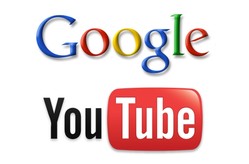Google search, YouTube under fire for counterfeit good ads
Phil Taylor, 10-Jun-2013
 Various attorneys general in the US have taken issue with Google over alleged failures to act against websites selling counterfeit and otherwise illegal goods.
Various attorneys general in the US have taken issue with Google over alleged failures to act against websites selling counterfeit and otherwise illegal goods.
The National Association of Attorneys General Intellectual Property Committee (IPC) has invited Google chief executive Larry Page to attend a meeting on June 18 on the issue, according to the panel's chair, Mississippi AG Jim Hood.
Google has been in the firing line for allegedly facilitating online counterfeit sales in the past. For example, in 2011 the search engine giant forfeited $500m in revenues generated from allowing rogue online pharmacies to place paid advertisements alongside its search results.
"On every check we have made, Google’' search engine gave us easy access to illegal goods including websites which offer dangerous drugs without a prescription, counterfeit goods of every description, and infringing copies of movies, music, software and games," said Hood.
"This behaviour means that Google is putting consumers at risk and facilitating wrongdoing, all while profiting handsomely," he added.
The IPC suggests that Google has not taken sufficient steps to prevent illicit trade, with as its search engine still displays at the top of keyword search results websites known to sell counterfeit goods while some of the sites selling fakes advertise with the company.
Among the topics to be discussed at the June 18 meeting will be Google policy on content removal. The AGs are puzzled that the company is able to routinely block offensive material such as child pornography, but seems unwilling to remove or 'de-index' known websites that "purport to sell prescription drugs without a prescription or provide pirated content".
There are also questions about Google's auto-complete facility, which proffers suggestions as users type in search queries.
Hood said in a statement that Google had claimed back in April that the predictions in auto complete are "an algorithmic reflection of query terms that are popular with our users and on the Internet" and are not manually selected".
This is misleading, he argues, as Google blocks certain auto-complete phrases. For example, the phrase 'free child' cannot be followed by 'porn' or 'pornography'.
The Mississippi AG also takes issue with Google's assertion that sites with high numbers of removal notices under the Digital Millennium Copyright Act appear lower in search results, noting that certain sites - such as torrentz.eu which has generated more than two million URL removal requests - continues to rank high.
"Google is being asked to adequately address the attorneys general concerns or prepare to be slapped with subpoenas forcing the company to produce documents and answer questions," said Hood.
YouTube also under scrutiny…
Meanwhile, a report published by public advocacy group Digital Citizens Alliance accuses Google of allowing its YouTube to be exploited by those selling and promoting illegal narcotics, prescription drugs without a valid prescription, knock-off merchandise, and fake IDs including driver's license and passports.
The report - available here - notes that when a search on the video upload site for "buy drugs without a prescription" it returns more than 38,000 hits, with several hundred hits apiece when more specific terms such as Percocet, Tramadol and Oxycontin were used.
In some cases the resulting hits linked to websites offering the drugs - all of which are controlled painkillers - without a prescription. Ads were found to be embedded in and around the video that raised revenues for Google, according to DCA.
"Google has made great strides in trying to block copyrighted material on YouTube and it deserves credit for doing so," says the DCA.
"That is why it's so discouraging to see their willingness to make money off of ads associated with Google searches and YouTube videos that promote counterfeit products or demonstrate how to engage in content theft."
Google said in a statement that it had already responded to the AGs' concerns, adding: "in the last two years, we've removed more than three million ads for illegal pharmacies, and we routinely remove videos that are flagged for violating YouTube's Guidelines regarding dangerous or illegal content".

©
SecuringIndustry.com




 Various attorneys general in the US have taken issue with Google over alleged failures to act against websites selling counterfeit and otherwise illegal goods.
Various attorneys general in the US have taken issue with Google over alleged failures to act against websites selling counterfeit and otherwise illegal goods.